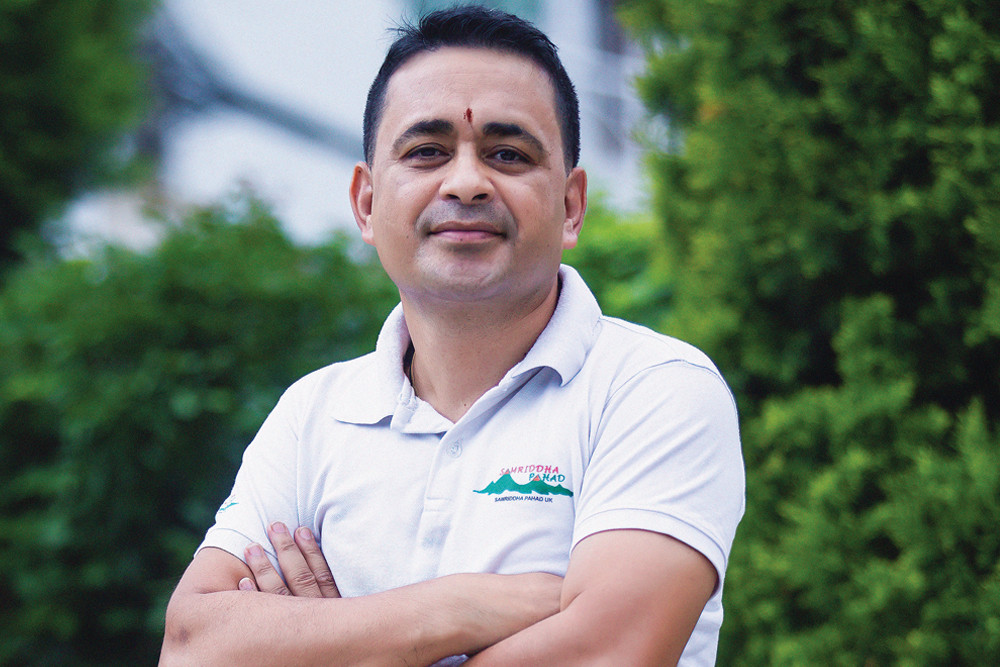
Bhawana Ghimire is the CEO of Cricket Association of Nepal. She was appointed to the position in October 2014. After completing her Bachelor’s Degree in Business Administration from Nepal Commerce Campus, Ghimire received her Master’s degree in Business Administration from the University of Wales in 2006. Ghimire has worked with Punjab National Bank in London, and with a wealth management company in Bahrain as a Relationship Officer. Ghimire aspired to be a banker but destiny had other plans and she discovered a passion for sports management through her current position.
She has initiated "Bat for Nepal" project under CAN appealing the global cricket communities to support Nepal and help rebuild earthquake damaged cricketing infrastructures.
An avid reader, Ghimire loves to stay updated on current affairs. Here, she shares her thoughts on leadership. Excerpts…
How do you define leadership?
Leadership is the ability to manage an organisation, make sound decisions and inspire people to perform well. Effective leaders are able to set and achieve challenging goals, take swift and decisive action in difficult situations, outperform their competition, take calculated risks and persevere in the face of failure. Good leaders must have good communication skills, a willingness to embrace change and are a mix of head, heart and guts to produce extraordinary results in adverse situations.How do you define success?
Success has a number of different elements.It is clearly about achieving a specific goal. It is the satisfaction of a job well done and accomplishing one's purpose. It is also the recognition of that achievement by others. Ultimately, success is a significant motivator for me – the desire to achieve success in all tasks that I undertake and to contribute to the best of my ability. Success can be measured sometimes and it is a psychological feeling.What are the challenges you face in leadership roles?
As we are working in a very dicey, unpredictable and unstructured environment, mostly I face challenges on value creation including issues around coaching and mentoring. Being in the sports sector, the challenge of team-building, its development and management is always a worthwhile task. Similarly, instilling pride in a team and supporting the team, leading a big team and dealing with a new team is a challenge which every leader has to face. Likewise, guiding changes as a leader is difficult. The challenge of managing, mobilising, understanding and leading change, mitigating its consequences, overcoming resistance to it, dealing with employees’ and other stakeholder’s reaction to it is a challenge I usually face. Similarly, managing internal stakeholders and politics, managing relationships, expectations of fans and self-image at the same time is a huge challenge to be met.How do you make decisions?
Nepali organisations are not working in a very democratic process. The power is usually centralised in the board. However, in case of my situation and scenario, I tend to make decisions by taking advice and approval from people who are supposed to be part of the process or system. I also use the method of delegationto take help from concerned people and experts so that somehow I can transfer risk to other experts as well. In this sector, timely decisions are to be taken on the basis of schedule and deadlines of tournaments, governance, commercial criteria and auditing. Similarly collective agreement with stakeholders (players, coaches, umpires, government officials, ICC, ACC, sponsors, board members) is an important part of decision making for me. One of the principles I follow in decision making is that I usually make crucial decisions before lunch.How do you define happiness?
Success and happiness have a positive co-relation. When I am successful in achieving my goals, it brings a sense of happiness. If I am happy, I tend to make good plans, bring new ideas, and think innovatively. Goals can be professional and personal (love, care and happiness) as well. We tend to be happy if we gain success in both aspects of our lives.Who are the people who have inspired you?
My parents and my family have a big role in inspiring me to become what I am today. However, I have support from a wide range of people who have faith in my capabilities. Personal role models for me are Bill Clinton, Oprah Winfrey and Steve Jobs. I was inspired by Bill Clinton since my childhood. I have read his biography and I am influenced by his sense of belongingness and sense of community feeling for the whole world. Oprah Winfrey is a lady who took on challenges, struggled a lot and proved herself as an icon. This strong part of her has a lot of influence in my life. Similarly, I am inspired by Steve Jobs who built a business with innovative ideas.Is leadership inborn or acquired?
We are not born leaders. However, we need to have some leadership genes or characteristics. Leadership is a mix of both inborn and acquired characteristics. We have to acquire certain characteristics in the learning process. I have acquired some leadership qualities with time. The basic thing to do is to be willing to change and adapt with time.
Published Date: March 25, 2016, 12:00 am
Post Comment
E-Magazine
RELATED Leadership


.jpg)


.jpg)